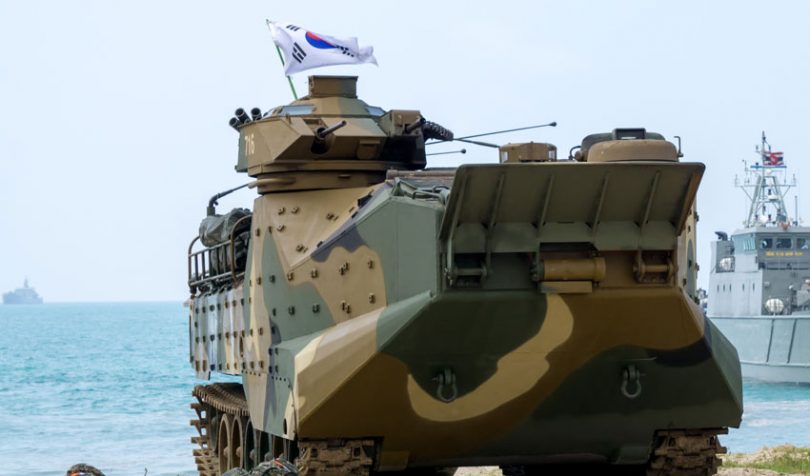On the 29th July, South Korea’s state Defense Acquisition Program Administration (DAPA) announced that it is working with multiple other agencies for an interoperable blockchain system. The arms procurement department hopes to create a more transparent and fair platform for military administration.
Three days before the announcement, DAPA made an agreement with the National Defense Science Institute, Defense Technology Quality Agency, and Korea Defense Industry Promotion Association to build the distributed ledger technology (DLT) solution.
They plan is to use blockchain to track the entire bidding process from the receipt of proposals to the evaluation of bids on defense contracts. Ultimate this should reduce the risk of fraud and increase efficiency by using one system between them. South Korea’s military funding programs will also be logged on the blockchain.
DAPA has selected firms Abydos and IBCT for the technology side of the project. Last week’s release claims it has been working with the companies since April when the organization first published its intent to use blockchain technology.
As revealed back then, the Defense Technology Quality Agency will indeed be part of a blockchain application for weapons logistics. Sensitive documents approving munitions being transported and delivered will be managed with DLT to protect against hacking and provide trustworthy data.
Kim Tae-gon, the Planning and Coordination Officer of the Defense Business Administration, stated: “We will continue to find ways to expand the blockchain through cooperation with the contracting organizations so that the [new technology] can be applied effectively and efficiently in the field of defense business.” (via Google Translate)
Last month KT, South Korea’s largest telecoms firm, announced a blockchain-based security service for connected devices via satellite. It appears the company is also hoping to apply blockchain in the military, for instance authenticating remote access to naval CCTV.







